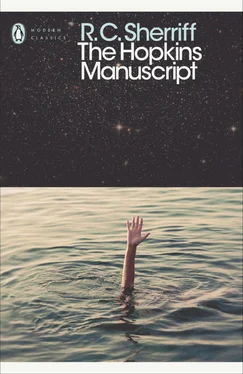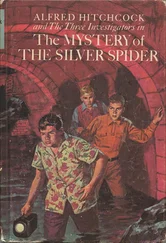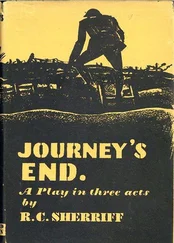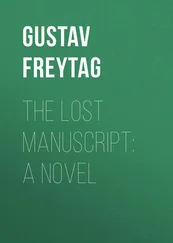Роберт Шеррифф - The Hopkins Manuscript
Здесь есть возможность читать онлайн «Роберт Шеррифф - The Hopkins Manuscript» весь текст электронной книги совершенно бесплатно (целиком полную версию без сокращений). В некоторых случаях можно слушать аудио, скачать через торрент в формате fb2 и присутствует краткое содержание. Год выпуска: 2018, ISBN: 2018, Издательство: Penguin Books, Жанр: sf_postapocalyptic, humor_satire, на английском языке. Описание произведения, (предисловие) а так же отзывы посетителей доступны на портале библиотеки ЛибКат.
- Название:The Hopkins Manuscript
- Автор:
- Издательство:Penguin Books
- Жанр:
- Год:2018
- ISBN:978-0-241-34908-3
- Рейтинг книги:4 / 5. Голосов: 1
-
Избранное:Добавить в избранное
- Отзывы:
-
Ваша оценка:
- 80
- 1
- 2
- 3
- 4
- 5
The Hopkins Manuscript: краткое содержание, описание и аннотация
Предлагаем к чтению аннотацию, описание, краткое содержание или предисловие (зависит от того, что написал сам автор книги «The Hopkins Manuscript»). Если вы не нашли необходимую информацию о книге — напишите в комментариях, мы постараемся отыскать её.
The Hopkins Manuscript — читать онлайн бесплатно полную книгу (весь текст) целиком
Ниже представлен текст книги, разбитый по страницам. Система сохранения места последней прочитанной страницы, позволяет с удобством читать онлайн бесплатно книгу «The Hopkins Manuscript», без необходимости каждый раз заново искать на чём Вы остановились. Поставьте закладку, и сможете в любой момент перейти на страницу, на которой закончили чтение.
Интервал:
Закладка:
As I walked towards the house I felt for the first time in my life a dread of my library – the room in which I had spent so many peaceful evenings of solitude – the room that suddenly loomed before me as the cell of a friendless, condemned man.
By nature I am a sociable fellow with a ready gift for making friends, but my numerous hobbies had of late years taken possession of me to such an extent that I had quite lost touch with neighbouring society. Night after night I was perfectly happy by myself in my well-stocked library. My poultry accounts, my notes on botany and my foreign stamp collection filled the winter evenings until dinner time, and the after dinner period was never long enough for all that I had to do. So much of a hermit had I become that my housekeeper had strict instructions never to disturb me once I had risen from dinner.
But now, as I entered my library, its very ‘cosiness’ repulsed me. Deliberately I had furnished it with dark, heavy curtains and solid, enduring furniture to give it an atmosphere of solitude and repose. Suddenly it took upon itself a suffocating oppression. I realised that I had made of this room a dark, soft-footed servant rather than a friend in need.
The fire was crackling brightly and nothing could look more inviting than the tray of tea that stood on the table in the flickering light. But I had no appetite. I toyed with a slice of seed cake but my mouth was so dry that the seeds almost rattled inside it, and I had to gulp some tea to dispose of them.
I had determined, in the false optimism of that sunlit morning, to make no change in my normal routine of life, but the shadows of an autumn evening threw a sadly altered light upon my vow. How horrible to sit alone in this room through the steadily lengthening darkness of the winter evenings! How terrible to sit alone, counting away the minutes that divided me from a ghastly end! There seemed no alternative: I could not suddenly begin a series of unexpected calls upon my neighbours, for that would arouse the surprise and suspicion that I was in duty bound to avoid.
But I knew that I must do something to preserve my sanity, and after long thought I resolved upon what may seem a pathetic attempt to alleviate my awful loneliness. I resolved to read from beginning to end the works of Sir Walter Scott. I possessed these in thirty volumes, and one a week would carry me far into the winter – even until the day when I should no longer need to nurse my secret.
As I rose and went to my bookshelves something happened to warn me of the dire state of my nerves. Mrs Buller had orders to pull my curtains firmly when she brought my tea, in order to give comfort to the room, but tonight these curtains worried me – I desired a sense of freedom, and I paused by the windows to draw them apart.
As I did so I glanced into the night. I saw the moon and nearly cried out in terror. It was rising over the valley – inflamed – diabolically swollen – hideously menacing! I dragged the curtains to, staggered to my chair and crouched over the fire. My forehead was cold and slimy with sweat. The scientists were right after all, but hopelessly wrong in their calculations, for the moon was already upon us! – I sat there quivering – waiting for the end: waiting for a rending crash in the beech trees – earthquake – tumult – blackness – eternity! By a strange twist of the brain that I have known so often since, I found myself struggling to decide whether there was any last thing I wanted to think about before the power of thought was beyond me for ever.
My jagged nerves had robbed me of the reason to reflect that the waning moon on a frosty October night was often yellow and distorted in size, and when presently I crept to the windows and peered through the crack of the curtains – when I saw it there – silver and serenely normal above the meadows – I cursed myself for an idiot and a coward.
I glanced at my watch. It was half-past six: an hour and a half before dinner time: a lonely dinner with more eternal time before I could go to bed. I could stand it no longer; I had to do something, and in desperation I decided to walk down to the village to buy some stamps at the post office.
I was happier out there in the clear, frosty night. I took the path across my meadow and climbed the stile to the village street. I had no fear of the moon out there beneath it: the moon and I knew all about each other now.
As I passed the gate of the Vicarage a new thought occurred to me. Last winter we had played one or two evenings of bridge. Hubert Edwards, the Vicar, his wife and I, and Major Willoughby from The Grange as a fourth, had arranged a weekly game, but the Major fancied himself a good player – insisted upon 6d a hundred and was so exceedingly difficult to get on with that the arrangement collapsed after three weeks, I having lost seventeen shillings and the Vicar and his wife nearly a pound between them.
Nothing had been said about bridge this winter, but here was a ray of hope – a chance to break the endless monotony of the empty nights that loomed ahead of me.
The Vicar was at a meeting, but Mrs Edwards was delighted to see me. She was quite sure that Hubert would enjoy a game on Tuesday evenings and suggested Mr Fayne-Higneth, Lord Burgin’s new agent, as a fourth. She and the Vicar would be happy to dine with me on Tuesday next at seven and would bring Mr Fayne-Higneth with them.
I was so pleased with this quick success that I decided to postpone my purchase of postage stamps until the following evening and to drop in to the Fox & Hounds instead.
At one time, when old Joe Sparling was proprietor, I had frequently dropped in for a glass of sherry before dinner. There was a comfortable little saloon bar where I would usually meet Alec Williams, the riding master, and one or two of my other neighbours. After a chat we would stroll into the public bar and please the good-hearted farm hands by playing a game of darts with them.
But I never liked Murgatroyd, the new proprietor. He was a bustling, bullying type of fellow, far more concerned with how much you drank than with how long you stayed. One evening three years ago I had been drawn into an unpleasant and undignified argument with him over the feeding of Bantam cocks of which he professed to be an expert. Since then my visits had grown less frequent and now for over a year I had never even crossed the threshold of the Fox & Hounds.
But it now seemed to me a duty to go there. Our President had impressed upon us the necessity of keeping careful observation upon the public and reporting immediately any sign that they were receiving rumours or otherwise learning facts that must be kept from them.
The Fox & Hounds was a pleasant, half-timbered little place that lay back from a small green in the centre of the village. I felt almost shy as I pushed open the saloon door, and something akin to physical pain as a blast of strident music hit me in the face. The large, ornate radio installed by the new landlord was one of the reasons why my visits had ceased. I had disliked the automatic piano of Joe Sparling’s day but that at least became silent after the consumption of each penny. I hoped that the radio might have worn out, but it seemed healthier than ever.
The saloon bar was occupied by a solitary fat man in gaiters who eyed me up and down with impudence. For some years past I had deplored the decay of country ‘types’. When I was a boy a farmer was a farmer and none could mistake his hearty, weather-beaten face and breeches and gaiters. Today there were crowds of ‘half-farmers’ who aped the gentleman – who wore anything from corduroys to canary-coloured jerseys – who scraped impatiently about in the fields and lived on petrol pumps.
This fellow in the bar was not the type of farmer that I admired, but he was obviously connected with the land although he debased a sturdy profession by carrying an umbrella.
Читать дальшеИнтервал:
Закладка:
Похожие книги на «The Hopkins Manuscript»
Представляем Вашему вниманию похожие книги на «The Hopkins Manuscript» списком для выбора. Мы отобрали схожую по названию и смыслу литературу в надежде предоставить читателям больше вариантов отыскать новые, интересные, ещё непрочитанные произведения.
Обсуждение, отзывы о книге «The Hopkins Manuscript» и просто собственные мнения читателей. Оставьте ваши комментарии, напишите, что Вы думаете о произведении, его смысле или главных героях. Укажите что конкретно понравилось, а что нет, и почему Вы так считаете.












